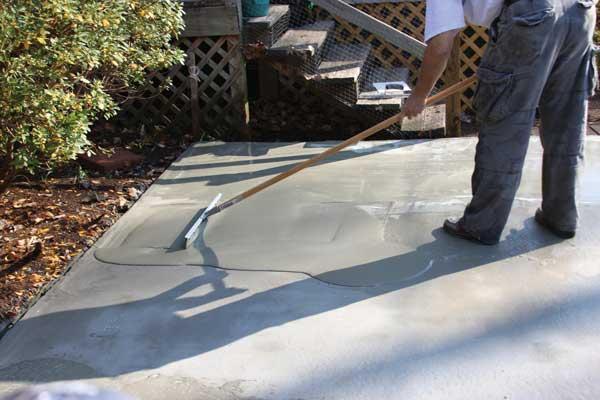Concrete is one of the most widely used building materials in the world. From driveways and patios to sidewalks, foundations, and commercial floors, concrete provides strength, durability, and long-lasting performance. But over time, even the most well-installed concrete surfaces may begin to show signs of wear and tear. Cracks, chips, spalling, and uneven surfaces not only affect appearance but can also compromise safety and structural integrity. That’s where concrete repair comes in—a smart investment that restores function and extends the life of your surfaces.
At New Jersey Concrete Company, we believe in helping homeowners and businesses understand the importance of concrete repair, the methods available, and why professional help often delivers the best results.
Why Concrete Gets Damaged
Concrete is strong, but it isn’t invincible. A few common causes of damage include:
-
Weather Changes – In New Jersey, freeze-thaw cycles are a big culprit. Water seeps into cracks, freezes, expands, and causes the cracks to widen.
-
Heavy Loads – Driveways and parking lots that bear the weight of vehicles may experience stress cracks over time.
-
Poor Installation – If the concrete wasn’t mixed or cured properly, it’s more vulnerable to early damage.
-
Chemical Exposure – De-icing salts, oils, and other harsh chemicals can eat away at concrete surfaces.
-
Soil Movement – Shifting ground beneath foundations and slabs can lead to cracks and uneven settling.
Understanding the root cause of the problem is the first step toward an effective repair.
Common Concrete Repair Methods
Not all damage requires the same solution. Depending on the type and severity, concrete repair can range from small DIY fixes to professional restoration. Here are the most common approaches:
1. Crack Repair
Hairline cracks can often be filled with a specialized sealant or epoxy. This prevents water from entering and causing further deterioration. For larger cracks, professional injection systems may be needed to restore strength.
2. Patching
For chips, potholes, or surface damage, patching materials are used to fill the damaged areas. When applied correctly, patches blend with the existing concrete and prevent further breakdown.
3. Resurfacing
If the concrete has widespread surface damage but is still structurally sound, resurfacing is an excellent solution. A thin layer of new concrete or a polymer-modified overlay is applied, giving the surface a fresh look and added protection.
4. Slab Jacking (Concrete Lifting)
Uneven slabs can create tripping hazards and drainage problems. Slab jacking, also called mudjacking, lifts the sunken sections by pumping a mixture beneath the slab, restoring its level.
5. Replacement
In cases of severe damage, replacement may be the best option. While more costly, it ensures a completely fresh start with durable, long-lasting results.
Benefits of Timely Concrete Repair
Putting off repairs often leads to bigger, costlier problems down the road. Here’s why addressing issues early is a smart choice:
-
Safety First – Cracks and uneven surfaces can cause trips, falls, and vehicle damage.
-
Prevent Further Damage – Sealing cracks and repairing chips stops water, salt, and debris from making things worse.
-
Enhanced Curb Appeal – Fresh, smooth concrete boosts the look of your home or business property.
-
Increased Longevity – Proper repair extends the lifespan of your concrete, delaying the need for full replacement.
-
Property Value – Well-maintained surfaces improve overall property value and leave a great impression on visitors or clients.
DIY vs. Professional Concrete Repair
Some homeowners attempt small concrete repairs themselves, especially for hairline cracks or small chips. While DIY kits are widely available, the results can be short-lived if the underlying problem isn’t addressed.
Professional concrete contractors, like New Jersey Concrete Company, bring expertise, proper tools, and high-quality materials to the job. We evaluate the extent of damage, determine the best repair method, and ensure the repair blends seamlessly with the existing surface. The result? A longer-lasting, more attractive finish that saves you money over time.
Choosing the Right Concrete Repair Partner in New Jersey
When selecting a contractor for concrete repair, consider the following:
-
Experience – Look for a company with a proven track record in residential and commercial repairs.
-
Range of Services – Ensure they offer solutions beyond patching, such as resurfacing and slab jacking.
-
Quality Materials – High-grade sealants, overlays, and mixes make a difference in durability.
-
Customer Reviews – Check for positive feedback from past clients.
-
Free Estimates – A trustworthy contractor will provide a clear, upfront estimate before starting work.
At New Jersey Concrete Company, we pride ourselves on delivering professional concrete repair services tailored to the unique needs of our clients. Whether it’s a cracked driveway, uneven sidewalk, or weathered patio, our team ensures your concrete surfaces are safe, strong, and visually appealing.
Final Thoughts
Concrete repair isn’t just about fixing cracks—it’s about protecting your investment, ensuring safety, and enhancing the look of your property. By addressing issues early and choosing professional help, you can extend the lifespan of your concrete surfaces and enjoy peace of mind.
If you’re dealing with damaged or aging concrete, New Jersey Concrete Company is here to help. With our expertise, quality workmanship, and dedication to customer satisfaction, we’ll restore your surfaces and keep them looking their best for years to come.

